Gender myths in global health
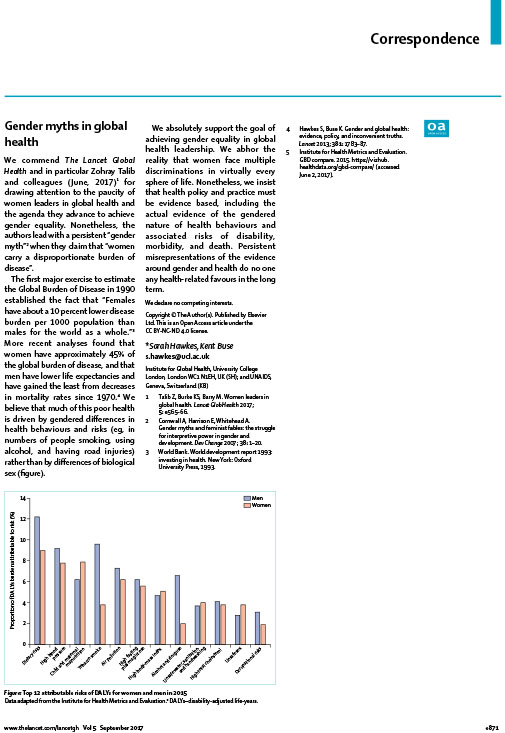
We commend The Lancet Global Health and in particular Zohray Talib and colleagues (June, 2017) for drawing attention to the paucity of women leaders in global health and the agenda they advance to achieve gender equality. Nonetheless, the authors lead with a persistent “gender myth” when they claim that “women carry a disproportionate burden of disease”.
Men’s Perceptions of Women’s Rights and Changing Gender Relations in South Africa: Lessons for Working With Men and Boys in HIV and Antiviolence Programs

Emerging out of increased attention to gender equality within violence and HIV prevention efforts in South African society has been an intensified focus on masculinities. Garnering a deeper understanding of how men respond to shifting gender relations and rights on the ground is of urgent importance, particularly since social constructions of gender are implicated in […]
Leaving No Man Behind: Improving HIV Services for Men
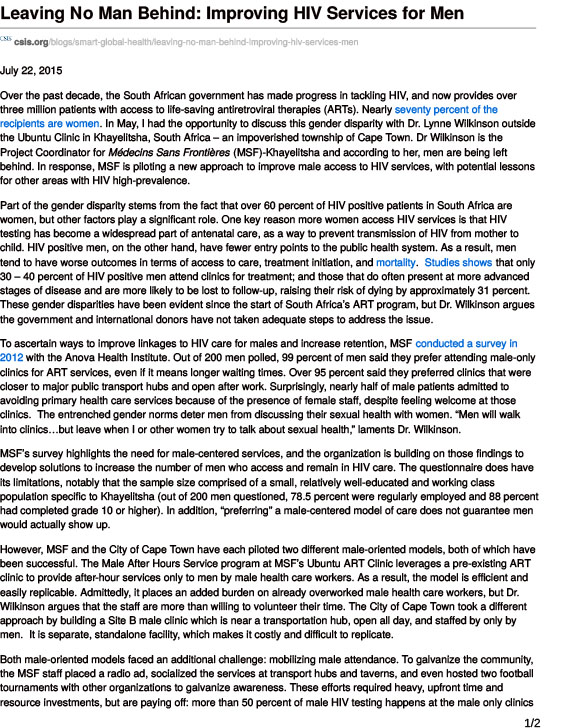
Over the past decade, the South African government has made progress in tackling HIV, and now provides over three million patients with access to life-saving antiretroviral therapies (ARTs). Nearly seventy percent of the recipients are women. In May, I had the opportunity to discuss this gender disparity with Dr. Lynne Wilkinson outside the Ubuntu Clinic […]
Perpetuating gender inequity through uneven reporting
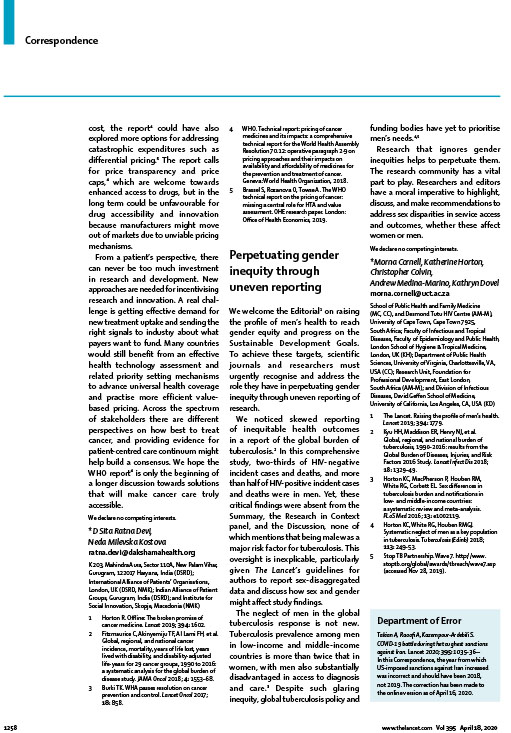
We welcome the Editorial on raising the profile of men’s health to reach gender equity and progress on the Sustainable Development Goals. To achieve these targets, scientific journals and researchers must urgently recognise and address the role they have in perpetuating gender inequity through uneven reporting of research.
Moving beyond gender stereotypes
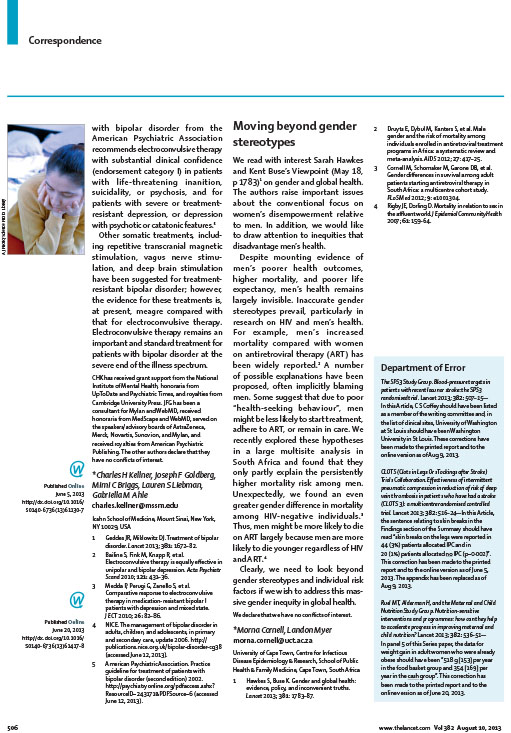
We read with interest Sarah Hawkes and Kent Buse’s Viewpoint (May 18, p 1783) on gender and global health. The authors raise important issues about the conventional focus on women’s disempowerment relative to men. In addition, we would like to draw attention to inequities that disadvantage men’s health.
Men’s health: a global problem requiring global solutions
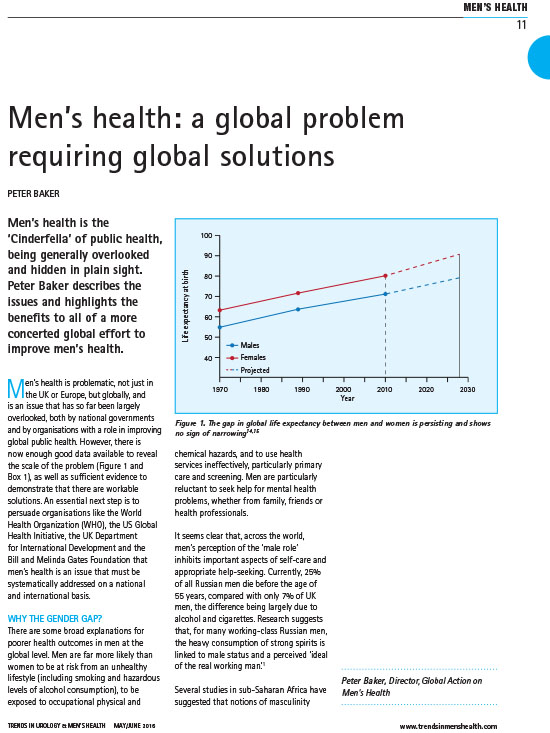
Men’s health is the ‘Cinderfella’ of public health, being generally overlooked and hidden in plain sight. Peter Baker describes the issues and highlights the benefits to all of a more concerted global effort to improve men’s health.
The men’s health gap: men must be included in the global health equity agenda
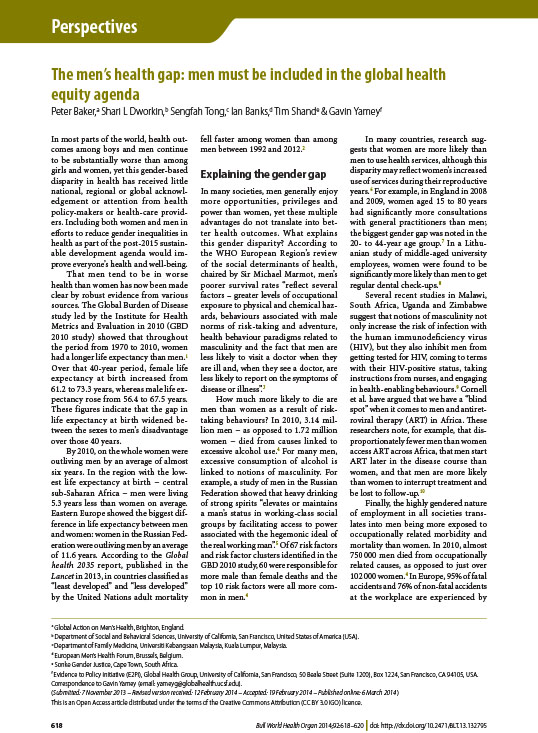
In most parts of the world, health outcomes among boys and men continue to be substantially worse than among girls and women, yet this gender-based disparity in health has received little national, regional or global acknowledgement or attention from health policy-makers or health-care providers. Including both women and men in efforts to reduce gender inequalities […]
Why now for a Series on gender equality, norms, and health?
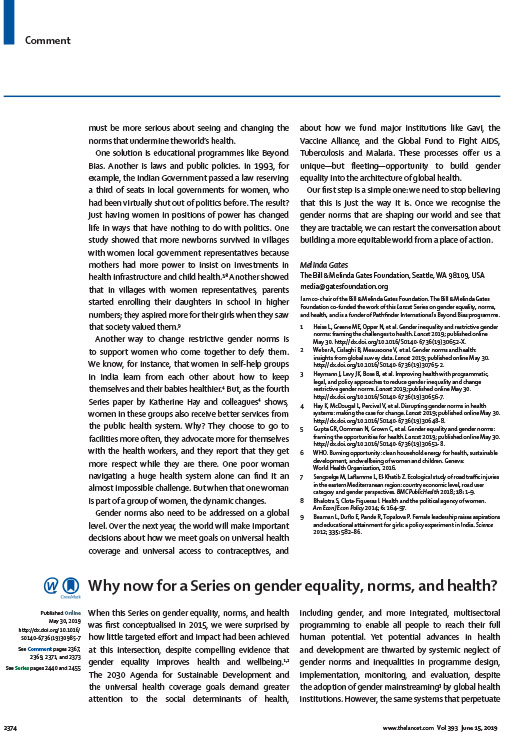
When this Series on gender equality, norms, and health was first conceptualised in 2015, we were surprised by how little targeted effort and impact had been achieved at this intersection, despite compelling evidence that gender equality improves health and wellbeing. The 2030 Agenda for Sustainable Development and the universal health coverage goals demand greater attention to […]
Sarah Hawkes: shining a gender lens on global health
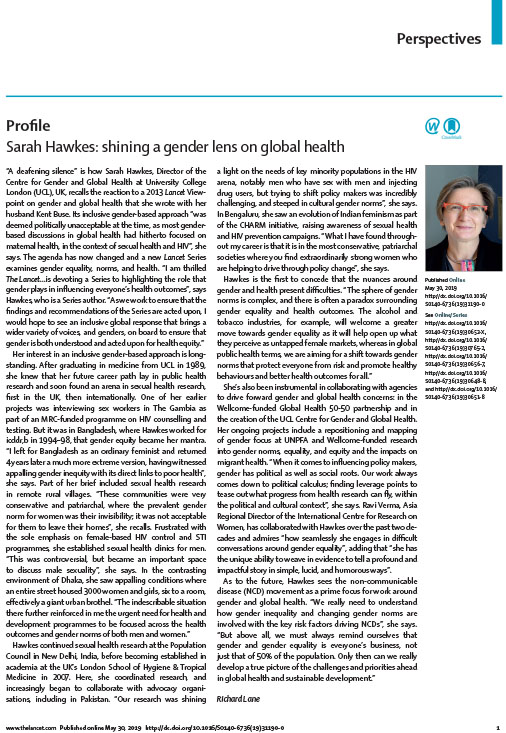
“A deafening silence” is how Sarah Hawkes, Director of the Centre for Gender and Global Health at University College London (UCL), UK, recalls the reaction to a 2013 Lancet Viewpoint on gender and global health that she wrote with her husband Kent Buse. Its inclusive gender-based approach “was deemed politically unacceptable at the time, as most gender-based […]
Improving health with programmatic, legal, and policy approaches to reduce gender inequality and change restrictive gender norms
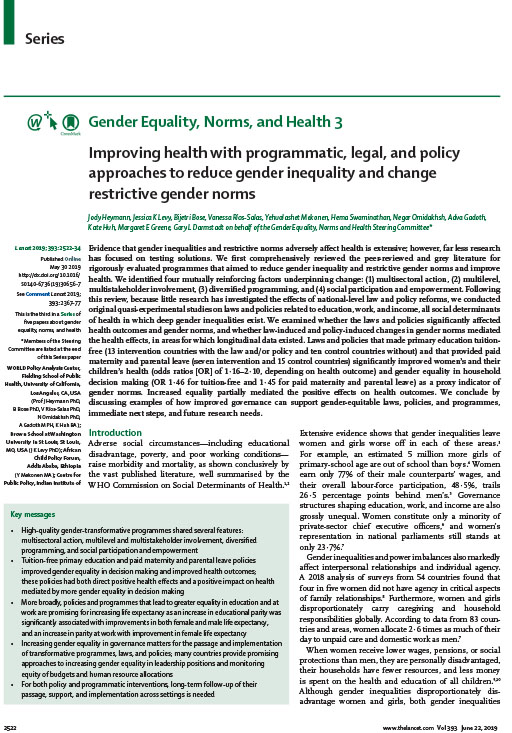
Evidence that gender inequalities and restrictive norms adversely affect health is extensive; however, far less research has focused on testing solutions. We first comprehensively reviewed the peer-reviewed and grey literature for rigorously evaluated programmes that aimed to reduce gender inequality and restrictive gender norms and improve health. We identified four mutually reinforcing factors underpinning change: […]


